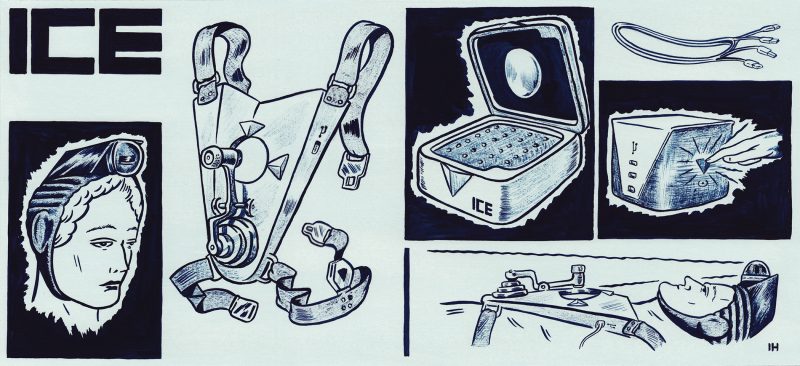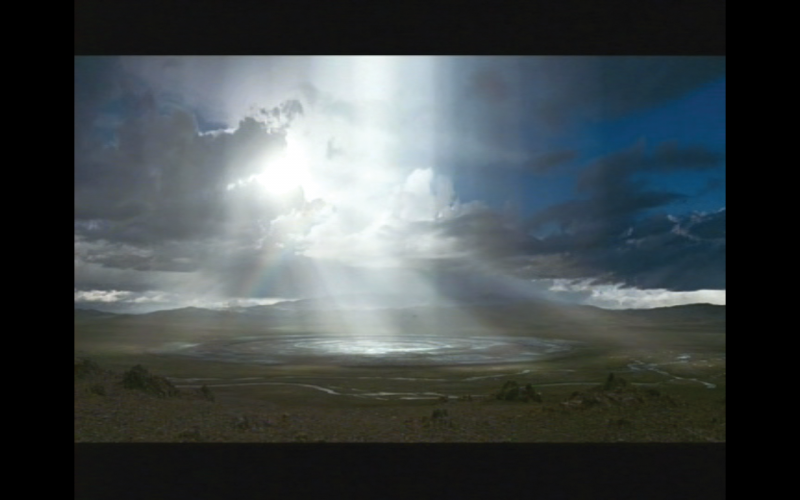In the “Oxen of the Sun” chapter of Ulysses, James Joyce presents sound-bite snippets of voices that move chronologically from Anglo-Saxon straight through to contemporary speech. I had a similar sensation of working through layers of literary history while reading Vladimir Sorokin’s Ice trilogy, three interlinked novels published together for the first time this year by New York Review Books and fluidly translated by Jamey Gambrell. The eponymous narrator of Bro, the first novel in the series,1 enjoys an idyllic childhood of privilege in the twilight of czarist Russia, as the son of a wealthy merchant. This life, beautifully evoked by Sorokin in full Nabokovian mode, is quickly obliterated, along with the narrator’s immediate family, by the Bolshevik revolution. Orphaned and traumatized, Sasha Snegirev is drifting through university in the new Soviet world when a classmate recruits him for a scientific expedition to Siberia under the charismatic Leonid Kulik (the scientist who led the real-life trek this story draws on). Its mission: to locate the remains of the meteorite whose explosion in Earth’s atmosphere is presumed to have caused the great fireball that appeared over the Tunguska region in 1908, flattening more than eight hundred square miles of forest.
Known in UFO circles as the “Russian Roswell,” the Tunguska event has long been a magnet for esoteric speculation, in large part because no fragments of the giant meteor, nor even its impact crater, have ever been found. (In his 1946 story “The Explosion,” Alexander Kazantsev famously styled the Tunguska event as the massive nuclear explosion of an extraterrestrial spaceship.)2 In what will prove to be no coincidence, our hero was born on the day of this catastrophic historic event. He’s been haunted throughout his young life by a vision of a “Light” at the top of a great mountain, and finds his only deep pleasure in astronomy classes where he tells us, in the distinctive style of typographic emphasis Sorokin favors, “I simply hung among the stars.”
Selected mainly because of the apparent good omen of his birth, the merchant’s son embarks on a fateful journey that initially offers further echoes of Nabokov (the lepidopterological expedition to Central Asia in The Gift, a work dismissed by a character in the third novel of Sorokin’s series as boring). But in Siberia, Nabokov and modernity get kicked off the wagon for good as the story takes a completely different turn to—what? That is the great aesthetic and moral question of these novels.
*
Here’s what happens: Approaching the impact zone, the young man feels strange inner stirrings. His childhood dream of the Light recurs,...
You have reached your article limit
Sign up for a digital subscription and continue reading all new issues, plus our entire archives, for just $1.50/month.
Already a subscriber? Sign in





